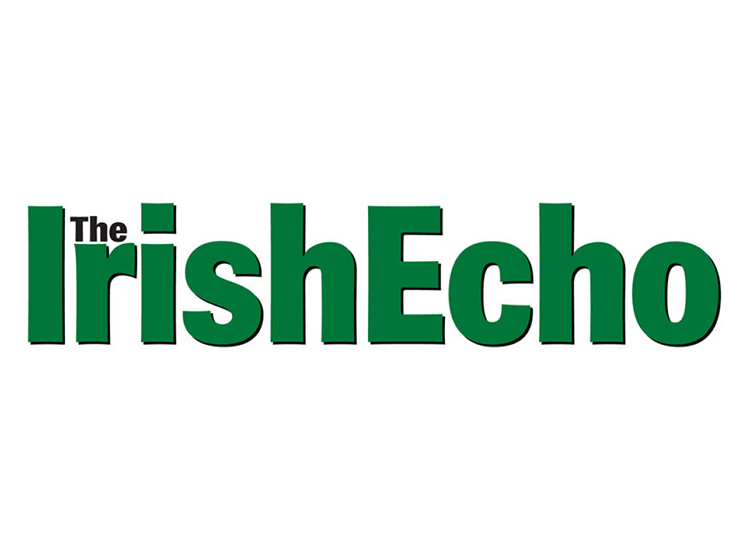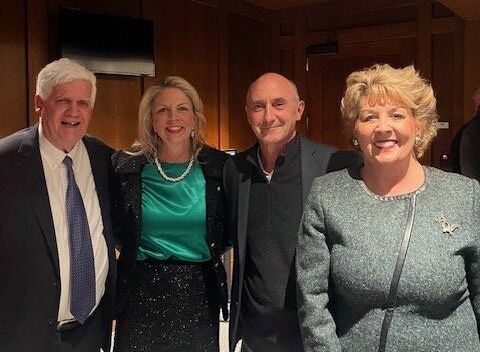Breaking into the American market isn't easy for an Irish firm, but it's a challenge Jonathan Tierney, co-founder and CEO of Crosscare Ltd, is willing to take on.
Tierney, 40, a businessman from Dublin, has spent years researching the U.S. market and last year launched a product called Colief Infant Drops, which caters to the problem of colic in infants.
In the elegantly appointed lobby of the Dream Hotel in Manhattan's Meatpacking District, Tierney, who is six feet tall and speaks in a quick Dublin patter, explained the structure of his firm, and outlined his American ambitions.
"We've been researching this market for the guts of ten years and we kind of knew what we wanted to do when we came in," he said.
"We didn't come in blind."
Tierney's father, Dan, established the business in 1965. Dan Tierney, who was from Limerick, had started out as a representative for the oil company Esso Oil, the European branch of Exxon.
But he left Esso when an opportunity arose to buy up a company called Osmond's, a direct to farm business, and then expanded by purchasing Bimeda, a struggling firm that was owned by a group of vets.
Bimeda now operates in more than 65 countries, employs more than 525 people worldwide and has group revenues in excess of $160 million. Of his father, Tierney said, "He's from Limerick, quite a poor family, and just built it up - a very successful entrepreneur."
Jonathan Tierney grew up in Blackrock in Dublin, attended Castleknock College and then Dublin Business School, which, at that time, was known as Portobello College.
He left the Dublin Business School after a year and moved to Manchester, England, working in an equine company (part of the family group) for six months. But he decided that he needed a break from the farming side of things and set off for California, taking a series of jobs in the food and beverage industry.
At the time, during the eighties, it was not unusual for a young Irishman to leave home for a few years and often longer. Tierney noted that the reigning economic climate of his youth was what is now known as Recession One.
"People just left college and went away, it was a given," he said of the 1980s. "It was kind of a trend that everyone did."
But he also happened to love traveling and felt that he learned a lot.
"I loved living in the States," he said. "I think it brings you more widely to society."
Tierney was 29 when he returned to Ireland, and shortly after that he got married. Today, he has two children and a baby on the way.
"We'll have three under three," he wryly observed.

Tierney runs the part of the family business dedicated to human products, called Crosscare. His brother, Donal, is in charge of veterinary pharmaceuticals, and their cousin, Gavin, oversees U.S. veterinary operations. When they are in the same country he and his brother meet for an hour every day.
In the U.S., Colief, which costs $14.99, is classified as a dietary supplement: parents put drops of Colief into their children's milk to make it easier for their stomachs to digest.
Frequent unexplained crying is one of the signs of colic, and Colief has promoted the notion of "we time," to emphasize that curing the condition will make it easier for parents to interact with their infants. As a father of young children, Tierney said that his family have used the product.
"My wife was forced into using it," he joked, adding more seriously: "If we didn't believe it worked, we wouldn't have taken the risk to launch this product. We do find that there are a lot of hot-trot products out there for different things, but we firmly believe that this has an important role in (the treatment of) infant colic."
Since its U.S. launch last year, Colief seems to have fared well, and it is listed in major pharmacies - CVS, Walmart, Duane Read, Walgreens, Target.
The product has its own facebook page (facebook.com/coliefinfantdrops) and twitter account (@Colief).
Dr. Bob Sears, a pediatrician and writer on child health, is its spokesperson, publicizing the product in articles on the Huffington Post, Fox News and CBS, and discussing colic with worried moms in a weekly tweet chat called #tummytuesday.
Tierney said that from an Irish perspective, America can seem an expensive place to do business. And it's cut-throat: things happen fast in America compared with Europe, and if a product doesn't sell, stores will swiftly remove it from their shelves.
But there is an upside to that too, he continued.
"One of the fascinating things I've found about the States is that things get done. If you ask for something to be done, it's done."
It might seem a risky time to expand a business, but the healthcare industry is relatively immune to financial trends. As Tierney put it: "I do believe that it's quite recession proof in the sense that unfortunately people get sick, unfortunately there has to be medicines for them, which mightn't be a nice way to put it, but it's a fact of life."
In addition to the U.S., plans for expansion in China are underway, and Colief is going through the regulatory process there.
But America is still the crown jewel of the business world.
"If you crack it, it's a fantastic place to be," Tierney said.
Fittingly for someone who is a CEO of a family business, Tierney is very much a family man. To oversee the U.S. launch of Colief he has been spending up to ten days of each month in America.
A sister lives in New Jersey and he intended to visit her following our interview. But for the next few weeks, with his wife scheduled to give birth any day, that pattern will change.
"Tomorrow I'm heading back and I'm not back here till mid-September. I'd be pushing it if I did anything earlier," he joked.
"I'll just be around to give a little bit of a helping hand in the evenings and things. I'll stay home for the first four to six weeks and then back to normal."









